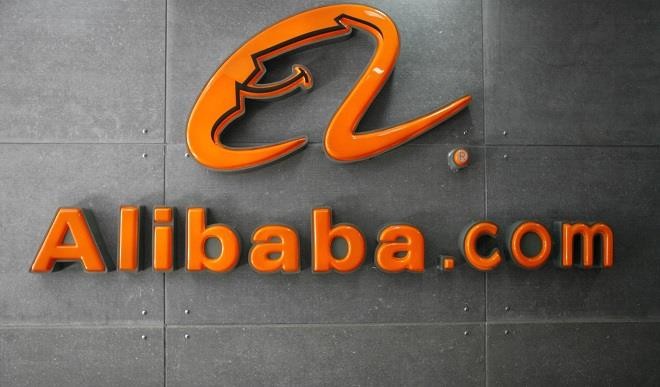Alibaba’s e-commerce platform sold $25.3bn in a day
This year, Black Friday, the day after the annual Thanksgiving Day in the U.S., is happening this Friday, or 24 November 2017, as Thanksgiving Day always falls on the fourth Thursday of the month of November. The day is special for Americans because it officially marks the beginning of Christmas/New Year Holiday season. The day […]


This year, Black Friday, the day after the annual Thanksgiving Day in the U.S., is happening this Friday, or 24 November 2017, as Thanksgiving Day always falls on the fourth Thursday of the month of November. The day is special for Americans because it officially marks the beginning of Christmas/New Year Holiday season. The day signifies when retailers all over the U.S. substantially mark down their merchandise to enhance large amount sales. American consumerism is most exhibited on Black Friday, as consumers wake up as early as 5:00 AM in order to get a good spot on the long lines to the stores. The event often leads to raucous situations; and deaths from stampedes in a rush to enter stores were reported in recent years.
While we don’t yet know how this year’s Black Friday is going to pan out in the U.S., we do know that China’s version just broke a world record this year. You see, China has created its own version of America’s Black Friday, which is called Singles Day. The day for singles – as in unmarried folks – began in the 1990s as a protest mostly by college students against the Valentine’s Day. The event also takes place in November, and specifically on November 11 of every year, with the date formally written as 11/11. So, this year’s Singles Day happened nine days ago, on 11 November 2017.
Everything in China is big. The country has the largest population in the world (1.379 billion people). When most people talk of big cities, they often refer to New York City; which, this year, has a population of approximately 8.54 million. However, there are at least seven cities in China that have more people than New York City: Guangzhou (50 million), Shanghai (24.5 million), Beijing (21.5 million), Tianjin (15 million), Shenzhen (10.3 million), Wuhan (9.78 million), and Chengdu (9.2 million). In fact, Guangzhou’s population is approximately the same as those of New York City, Los Angeles, Chicago, and Houston metro areas combined! The world’s longest bridge, the Danyang-Kunshan Grand Bridge on the Beijing-Shanghai High Speed Railway, is 164.8 kilometers long! The following items are produced more in China than in any other country in the world: ships, coal, pork, cement, mobile phones, solar cells, energy-saving lamps, air-conditioners, and personal computers.
In other words, China has a lot to leverage. The e-commerce platform is an example of such leverage, as the country’s population has seemingly translated to the largest population of Internet users. (Too bad for India; it has not been able to leverage its own large population in the manner that China has.) E-commerce in China probably has more meaning than in the U.S. because China has not gotten around to building the kinds of brick and mortar department stores that you find in the U.S. As far as e-commerce in China is concerned, Alibaba is the one to beat. The company might have even hijacked the Singles Day to become more like an E-Commerce Shopping Day. To prepare for this year’s Singles Day, Alibaba organized a Singles Day gala the night before the annual shopping extravaganza. Top American actresses/music celebrities like Pharrell Williams and Nicole Kidman flew into to Shanghai to perform at the lavish event on the eve of Singles Day.
Alibaba’s gala for this year’s Singles Day is reminiscent of the company’s annual Alifest event, which I guess stands for Alibaba Festival, to which the company has reportedly been able to attract figures like former U.S. president Bill Clinton, ex-California Governor Arnold Schwarzenegger, and Starbucks CEO Howard Schultz. However, the purpose of the two events appears to be different: one might have to do with the desire of Jack Ma, the founder and Chairman of Alibaba Group, for acceptance on-a-global-scale, while the other is simply to drum up e-commerce business on Singles Day.
Alibaba’s preparation for Singles Day paid off. The company made a sale of over $1 billion within two minutes of this year’s Singles Day. By the end of the day, the company had made a sale of $25.3 billion, which is a record for the world, and also a testament to effective leveraging. For Alibaba, this year’s sale is 40% higher than the figure for last year. Responsible for this year’s success, customers from 225 countries reportedly logged in to make purchases, while 600,000 local Chinese shops participated. Alibaba’s online market prides itself this year on better technology: processing 256,000 orders per second at peak hours.
Lest we forget, a vital component of Alibaba’s strategy for leveraging home advantage is to keep foreign competitors off. Alibaba is favored in China. Jack Ma reportedly had the mission to keep the U.S. e-commerce pioneer and behemoth eBay off from Chinese soil. This U.S. Company moved into China when Alibaba was relatively young, but withdrew from the country in 2006 after losing the war against Alibaba. This is obviously another dimension to leveraging.
It is apparent that Alibaba is aggressively charting the course of becoming a global tech company even though as of now its e-commerce platform accounts for approximately 90% of sales.
